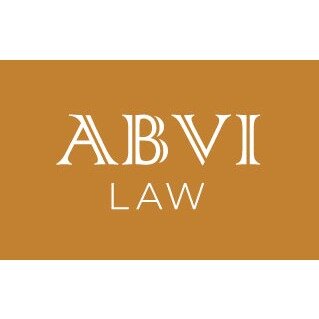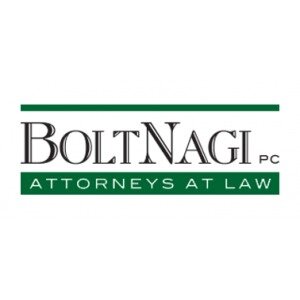Best Conveyancing Lawyers in British Virgin Islands
Share your needs with us, get contacted by law firms.
Free. Takes 2 min.
Free Guide to Hiring a Real Estate Lawyer
Or refine your search by selecting a city:
List of the best lawyers in British Virgin Islands
About Conveyancing Law in British Virgin Islands
Conveyancing in the British Virgin Islands (BVI) refers to the legal process of transferring ownership or legal title of real estate from one person or entity to another. The BVI is a British Overseas Territory with a legal system based on English common law, supplemented by local statutes and regulations. The property market in the BVI can involve residential, commercial, or investment transactions, including sales, purchases, gifts, and leases. Due to the unique characteristics of BVI property law and ownership structures, it is vital that all involved parties fully understand each stage of the conveyancing process to ensure a smooth transaction and avoid potential legal complications.
Why You May Need a Lawyer
Engaging a qualified lawyer in BVI conveyancing transactions is highly recommended. Lawyers ensure compliance with local laws, conduct due diligence investigations, draft and review necessary documentation, and protect clients' interests throughout the transfer of property. Common situations where legal assistance is important include:
- Purchasing or selling residential or commercial property.
- Transferring property as part of inheritance or estate planning.
- Leasing or renting real estate with complex terms.
- Resolving property disputes, boundary issues, or title defects.
- Dealing with government consent requirements, especially for non-Belongers (non-citizens or non-permanent residents).
- Navigating property held through corporate structures or foreign ownership.
- Ensuring payment of appropriate taxes and Stamp Duties.
A lawyer’s involvement adds peace of mind and legal security, reducing the risk of costly errors or delays.
Local Laws Overview
Conveyancing in the British Virgin Islands is governed by a range of statutes, including the Registered Land Act, Stamp Act, Land Acquisition Act, and Alien Landholding Regulation Act. Some key aspects of BVI conveyancing law include:
- Title Registration: Most land in BVI is registered, and title to such land is transferred by registration of a Transfer Instrument at the Land Registry.
- Land Ownership Restrictions: Non-Belongers require a Non-Belonger Land Holding License to purchase property, with approval subject to government assessment.
- Documentation: Standard documents include Sale and Purchase Agreements, Deeds of Transfer, and, where applicable, Mortgages or Charges.
- Due Diligence: Searches for title, encumbrances, planning permissions, covenants, and outstanding taxes or utility bills are critical steps.
- Stamp Duty: Buyers are typically responsible for paying Stamp Duty on property acquisitions, with higher rates often applying to non-Belongers.
- Completion Timeline: The process varies but is typically completed within one to three months, subject to government consents and registration workload.
It is crucial to work with a local legal expert familiar with these requirements to avoid consequences such as invalid transactions or penalties.
Frequently Asked Questions
What is the first step in the conveyancing process in the BVI?
The process usually starts with a formal offer or Sale and Purchase Agreement, followed by legal due diligence and title searches conducted by your lawyer.
Can foreigners buy property in the British Virgin Islands?
Yes, but non-Belongers must obtain a Non-Belonger Land Holding License prior to completing a property purchase.
How long does it take to complete a property transaction in the BVI?
The process can generally take between one to three months, depending on whether government consents are required and the efficiency of the registration process.
What are the major costs involved in property conveyancing?
Typical costs include legal fees, due diligence fees, Stamp Duty (which varies by status), registration fees, and third-party expenses such as surveying costs.
What taxes apply to property purchases?
The main tax is Stamp Duty, calculated as a percentage of the property value. There are also fees for registration and, in some instances, Consent Fees or License Fees for non-Belongers.
What is the role of the Land Registry?
The Land Registry maintains ownership records and is responsible for registering transfers, ensuring legal title passes accurately between parties.
Do I need a lawyer if I am just renting a property?
While not legally required, having a lawyer review your lease agreement is advisable, especially for commercial leases or long-term arrangements, to ensure your interests are protected.
What happens if there is a dispute over the property boundary?
Boundary disputes are handled by the Registry and may proceed to the courts if unresolved. Legal representation is strongly recommended for dispute resolution.
Is property inheritance subject to special conveyancing rules?
Yes, property transfers on death may involve probate proceedings, and a grant of probate or letters of administration is usually required before title can be transferred to heirs.
What should I check before purchasing a property?
Essential checks include title verification, outstanding mortgages or charges, unpaid taxes, current zoning or planning restrictions, and physical inspections or surveys.
Additional Resources
For further information or assistance regarding conveyancing in the British Virgin Islands, you may consult the following agencies and organizations:
- BVI Land Registry - maintains property ownership records and handles registrations
- BVI Ministry of Natural Resources, Labour and Immigration - responsible for Non-Belonger Land Holding Licenses and policy
- BVI Bar Association - directory of licensed legal practitioners
- BVI Financial Services Commission - oversight for company and trust structures involved in property ownership
- Local surveyors and real estate professionals - offer support in inspections and property valuation
These organizations can help clarify procedural questions and connect you to qualified professionals for your transaction.
Next Steps
If you are considering a property transaction in the BVI, your first step should be to consult with a qualified BVI conveyancing lawyer who can guide you through the process. Gather all relevant documents such as identification, proof of funds, and any agreements or titles you already possess. Discuss your goals, budget, and timeline with your legal adviser to map out a smooth procedure. Your lawyer will coordinate with relevant authorities, conduct due diligence, and finalize documentation, keeping you compliant with all local laws. Do not hesitate to ask questions and request clarifications at each step, ensuring that your interests are always protected as you move forward in your property transaction.
Lawzana helps you find the best lawyers and law firms in British Virgin Islands through a curated and pre-screened list of qualified legal professionals. Our platform offers rankings and detailed profiles of attorneys and law firms, allowing you to compare based on practice areas, including Conveyancing, experience, and client feedback.
Each profile includes a description of the firm's areas of practice, client reviews, team members and partners, year of establishment, spoken languages, office locations, contact information, social media presence, and any published articles or resources. Most firms on our platform speak English and are experienced in both local and international legal matters.
Get a quote from top-rated law firms in British Virgin Islands — quickly, securely, and without unnecessary hassle.
Disclaimer:
The information provided on this page is for general informational purposes only and does not constitute legal advice. While we strive to ensure the accuracy and relevance of the content, legal information may change over time, and interpretations of the law can vary. You should always consult with a qualified legal professional for advice specific to your situation.
We disclaim all liability for actions taken or not taken based on the content of this page. If you believe any information is incorrect or outdated, please contact us, and we will review and update it where appropriate.
Browse conveyancing law firms by city in British Virgin Islands
Refine your search by selecting a city.














